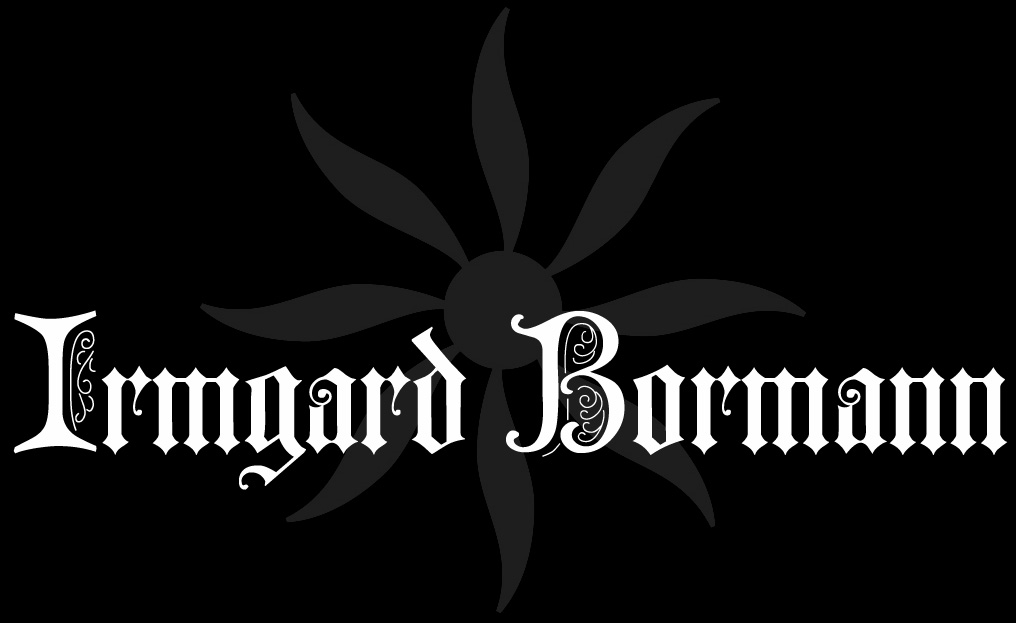
Interview with Irmgard Bormann, daughter of Private Secretary to the Führer Martin Bormann, Trento, Italy, 1987.
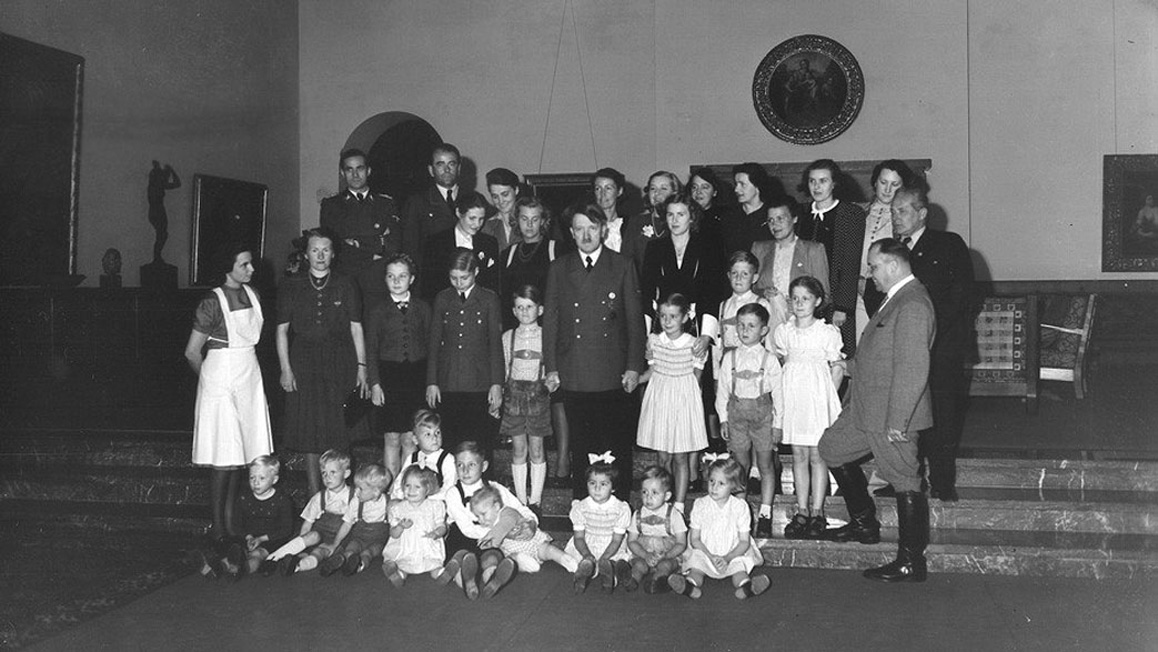
[Above: Group shot of the children of Albert Speer (back row, 2nd from left) and Martin Bormann (far right/front), among others.]

Thank you so much for allowing me to meet you, I promise not to take up a lot of your valuable time. As our friend mentioned I only want to ask a few questions of you for my collection. So if I may, could I start by asking if you would tell me a little about Italy and how a German came to live here.
Irmgard: Oh for the God's sake do not be bashful; it is a treat to meet someone so young who is interested in certain aspects of my family and life. I am told you are quite an interesting young one, and grown into a fine soldier. You must come and visit again as I am happy to have you.
So yes, why am I here in this part of Italy? The area has many former Reich citizens here as it is a very quiet area that is very self-sufficient. The Italians have given certain protections to former Germans and we have made the Tyrol our home. I came here with our mother in 1945. We had a lovely home in Berchtesgaden and the Allies destroyed the area, so we had to leave.
We were put under protection and moved south into the mountain areas to be safe; we came here as many friends of my grandfather and father were here. You could say we were placed here for safekeeping so that the Allies could not get us. But they did, and they came for our mother who I remember seeing in a panic as they took her away.
You see, our father was with the Führer in the final days and our mother had to bring all of us with her to a safe place. She had helpers who came along to help us all settle in. We saw many people come and go during that time, and the people brought us gifts and toys to help take our minds off it all. But I remember being scared when soldiers showed up to take mother, and then when she was sick they sent doctors that she did not want. They took her life I am convinced.
They kept her from us and tormented her and used her as a hostage to try to get our father to come. They wanted our father very badly and used our family to try to find him. I can tell you they scared mother deeply. She would never tell us what they did to her but I remember seeing her with bruises and dark circles under her eyes.
She would tell us the victors were very cruel and evil, an evil force my father had tried to fight. Of course we so young back then I could not understand any of it. So we settled into life in this area and made the best lives we could. Our mother died of sickness soon after, and it is said she was poisoned by enemies of her beliefs, who wanted to punish her for her loyalty.
We were so young back then, and scared for our future but we had good people who cared for us, friends of the family you could say. We had a large family on both sides, and many party members who made lasting friends and all came to help us in our time of need.
So the people here were good to you after the war? Even with the Allied claims of crimes?
Irmgard: We were never accused of crimes, my father and grandfather were. Yes, the people here were very friendly. You see my father was very friendly to the Italians, and a close friend of Mussolini. This area was always loyal to the cause and the people guarded us.
Even today you may see some quietly give the old greetings when they know it is safe to do so, it is quite odd to see in this day. Many of what my father called the old guard had family to survive them and they sought protection in quiet areas. Many would come to call on us afterwards and bring messages about family.
One Italian officer who worked with my father often made sure we had our needs met and any nosy people were kept away. I am thankful for the good treatment here and the good will of the Italians. My father's aid Zander would often stop by to greet us and see how we were doing.
I know he had many friends here and in Italy who would come with him on holidays. He told of all the good things our father had done for Germany and the Führer.
[Zander was in fact the adjutant of Martin Bormann, SS-Standartenführer Wilhelm Zander. He was in the Führerbunker during the Battle of Berlin and was entrusted by Adolf Hitler to deliver his last will and political testament to Karl Doenitz. Before becoming an NSDAP member he was known to have business interests in Italy, which he abandoned to devote himself to the party. In December 1945 he was captured by his enemies in Passau, along the Austrian border-Ed.].
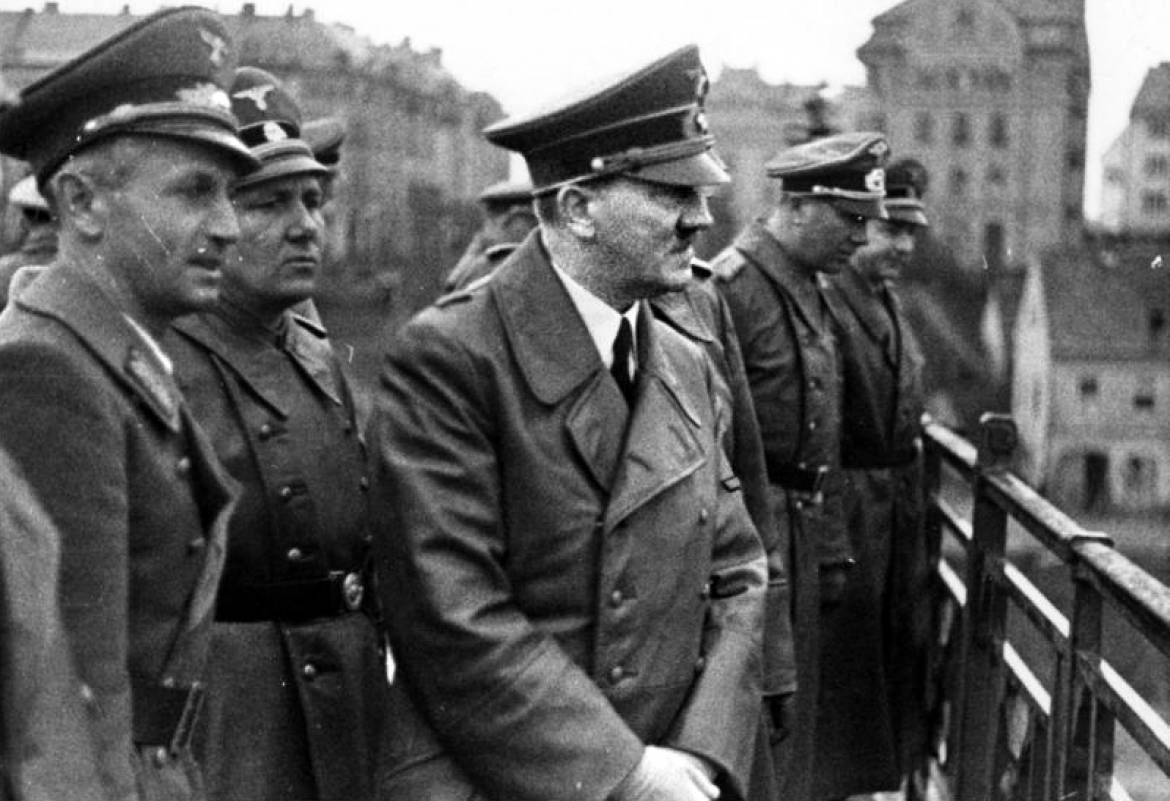
[Above: Here is a photo of the very elusive Wilhelm Zander (far left, next to him is Martin Bormann. This is the sole photo of him I could find!), during a visit on April 26, 1941 by Adolf Hitler to 'Marburg an der Drau' (today Maribor, Slovenia). Adolf Hitler was met there by Heinrich Himmler, who apparently had been there since at least the 17-18th).]
Can I ask what you remember of your father? I know he was very close to Hitler and a lot of bad things have been said about him.
Irmgard: My father was a good father; I remember he was very loving and cared deeply for us. We had a large family, yet he found time to spend with each of us. I still remember bouncing on his lap with my sisters taking turns. We would wear his golden cap which would fall down over our faces and hit the floor, which brought great laughter.
There have been many things written and spoken about my family, of both grandfather and father. You already know, I believe, that you can not trust everything you hear. My father loved my mother and each of us. There were never any instances of abuse, yelling, or beatings as the papers have said.
We had a very good life I remember, my father was treated as a celebrity wherever he went. He was a favorite of the Führer, and very loyal. The East Germans and their occupiers have claimed he was an agent for Stalin. This is false and utter nonsense. I know he respected the Führer and was loyal until death.
My father was not a popular man with some, I know this. After the war the families that helped us made sure we were aware that it was not anything he did personally. Father's job was to allow the Führer to concentrate only on the war. He could not be bothered by petty party issues.
I heard him once dressing down someone important, who was worried about securing a high party award for someone. I heard father say we are in a life or death fight, we do not have time to worry about who gets to wear a shiny badge. He refused to get the Führer involved and the person cursed at him. I then heard father call for him to be disciplined for insubordination.
That was what I remember, a man dedicated to protecting the Führer from opportunists, glory seekers, and hangers-on. He would say the Führer needed to be safeguarded from those who sought unfair favor that was not earned. For that stance, some did not like him, and sought solace from the occupation forces by telling lies about him and others.
I have been told your father was very anti-Christian and hated the Church, even wanting to raze all the churches in Europe. One author I read even says he ordered the killings of nuns and priests, all with Hitler's blessing.
Irmgard: That is not the truth I can tell you. Discussing the issue of religion during the time of National Socialism is hard but I will do my best. My family was a Lutheran family, we were all baptized. It is a lie that we were not. While my father certainly did not involve us children with matters of the state, I have to come to understand some things.
He was not opposed to the Church, quite the contrary. He gave money to the Church I know, and we had clergy visit us. We would attend services, especially at the time of Easter and Christmas. Our mother and grandparents were very godly people as well. I understand the enemies of the time say what they say to make the people turn against it all.
My father, and indeed I think most all of the people who were believers of the NS idea, were godly people. The problem they ran into, which my mother warned us of, was the Jews infiltrating the religion of Christ and poisoning it.
She warned that something they did early on was become close to the Church so that they could influence doctrine and other aspects. You can see this today how the Catholics are bending their catechisms now to not offend Jews or Jewish interests. Mother said times may come when all believers will believe the lies of the Jews.
I am not anti-Jewish you must know, we were made aware that some Jews are good and some have been at the forefront of a war against us. I would hear my father talk to comrades about this but it was not something I understood then. In Germany there was a guarded position regarding the Church.
I know the Führer took the stand that the Church, no matter the denomination, could not control the politics of the Reich. It was forbidden for them to have such power that they could sway the people to either the Catholic or Protestant side. It had nothing to do with a war on the "Church" but was more of a way to make sure the Church, who many believed was under Jewish influences, could not mislead the people.
I know my father fully supported a new way of thinking in Germany that was very much aligned with both the Bible and National Socialism. They were called the German Christians, and my father had many friends in this group. It is interesting to me that many of the leaders of this idea were killed after the war, in a sort of inquisition of medieval proportions.
So the party I know took a stand against any Church corruption or bulling. My father certainly butted heads with those who were opposed to the Führer and National Socialism, and there were several. After the war they were able to tell their version of events while my father and others were not.
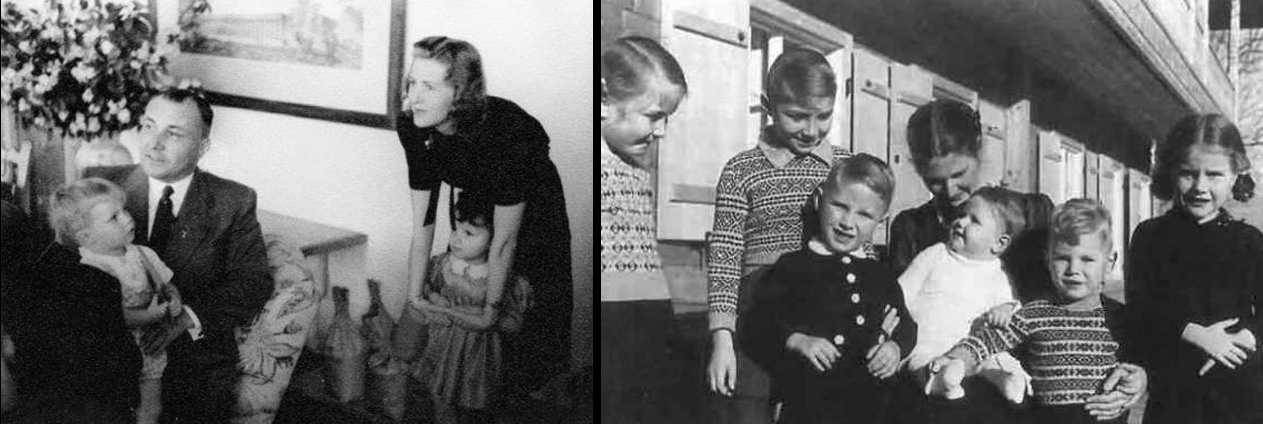
[Above: (left) Eva Hitler Braun and Martin Bormann with some of his children and (right) more of the Bormann children.]
Did you ever meet Hitler?
Irmgard: Oh yes, many times. You see my father was very close to the Führer, I would say they were very good friends, and the Führer was at our home often. My grandfather, if you didn't know, was Walter Buch, who was a judge in the Party. He was also a good friend of the Führer.
He was murdered after the war also; the Allies exacted a terrible justice on anyone who was close to the Führer. Anyone who refused to go along with them or attempted to expose their lies was killed off. Such was the justice of the victors. It was as if a dark cloud overcame this continent and brought an evil force.
My grandfather told us this will happen and to be prepared as best we can. That we should never think badly of those the victors will tell us to hate. My brother was not there when he spoke to us about what will come. That talk he gave us all stayed with me, even as a young girl growing up after the war.
As for the Führer, I loved him, and he loved us. I know that is hard to perhaps understand but he was a genuine and good man, he loved children and always gave us praise for something. He would like our dresses, or perhaps shoes, or hair. We would play on his lap and hold his hand. Of course when I was older I wanted to be treated like an adult, so I would sit and try to speak with him.
I remember, I think it was in 1943, I asked him why enemy planes were coming to the cities. My father told me to not speak of the war or such things. But the Führer waved him off and then spoke to me. I still remember the look of sadness in his eyes. He told me Germany's enemies would be dealt with soon, but a big battle must happen in the east first. He said he is troubled by the planes that bring sadness but soon they will be swept from the sky.
Of course I was only feinting being in the know about the war, to us we knew it was happening but were very sheltered from it. I did hear of the bombings from friends or the papers we had.
I know of nothing bad about the Führer, he was always nice to us and we enjoyed being around him, it was an exciting time when he came to visit us. You know we never had guards around the house. He was never afraid of the people; there was no need for security until the war started. It was always a proud moment I could tell for our parents to present us to the Führer.
My grandfather was around for this too and between him, my father and the Führer, they had a good time talking about the early days of struggle. We would hear them laugh and speak loudly in joyful conversation. Hitler was a bit of a jokester, he would always have a joke to tell, and also pull our ears or nose often and then tell a joke to make us laugh.
You know I will share with you a less than flattering moment with him, but I am sure he wouldn't mind if he was here. Once when were at his home, we had finished dinner, and we children grabbed the coloring books and puzzles. Hitler sat down to watch us and let out a very loud belch by accident.
Of course being children we wanted to laugh as it was funny, but we knew to be respectful. Of course he looked over to us all and said he sat on a frog that someone forgot to tell him about. We then could laugh loudly, to the concern of the adults around. I still remember that time after all these years.
Could I ask your thoughts on why so many Germans seemed to turn on Hitler after the war and agree with war crimes charges?
Irmgard: I am afraid I have not paid much attention to the war crimes claims of the victors so I don't have much I can tell you. I do have an observation I can share with you. Again a friend of the family told us children after the war to not pay heed to the bad stories coming out in the papers.
One man, a pastor I remember, spoke to us and said the Allies are making Germans say things that are not true. I have come to understand that many Germans were tired of the war and glad to be done with it, whoever the winner was. They wanted to make a future for themselves, and they did this by telling the victors stories.
I can give you a thought on the claims of crimes this way: German soldiers seemed to be aware that blaming things on the other guy made them free. There was a trial or investigation I was told where this worked and word was passed on to not try to defend your action or try to prove the incident didn't happen, you just cast blame on another comrade, maybe who fell.
All the Allies cared about was that someone was proving them correct and that their conduct of the war was justified. That was all they cared about, if you turned on the other, then all the better. As long as you proved their allegations then you were perhaps slapped on the wrist and allowed to go home.
That is why some Germans seem to go into this camp; they merely wanted it all to be over and had no desire to relive any of it. If it meant cowering to the victors then so be it, in their minds it was better to be home with family than be prideful.
What was your father's attitude towards the Jews, if I can ask?
Irmgard: I think I told you already, my father did not hate the Jews, only the Jews who seemed to be waging a war on Germany and our culture. You see the hatred of Jews in Germany goes way back. Even Martin Luther wrote about this, they seem to always do something that gets them kicked out of a nation.
Of course this doesn't mean they are all bad and vile, but enough of them do bad things to the host people that they rise up and throw them out. This is what happened in Germany. Hitler merely shined a light on the deeds of the Jews, my father and grandfather spoke of this around us; they blamed Jews for the war.
I know there were Jews who were sent away because it was believed they could not be trusted and could aid the enemy. I know that not all were sent away, as my father would have to intervene at times with who could stay and who was a threat.
I know anyone who was deemed a threat was sent eastwards into a holding camp for later resettlement further east. This is what happened, nothing more. I do not think any of the stories they tell are true. I would have heard at least bits and pieces since I was often present with high leaders.
I would try to pay attention at times and never heard anything that supports the stories of killings and so forth. Like I said beware of what you believe. Another reason for being in the Tyrol is nearly everyone here knows the truth, and even the Italians know the lies that were told of Mussolini, and so they don't believe what is said of the Führer.
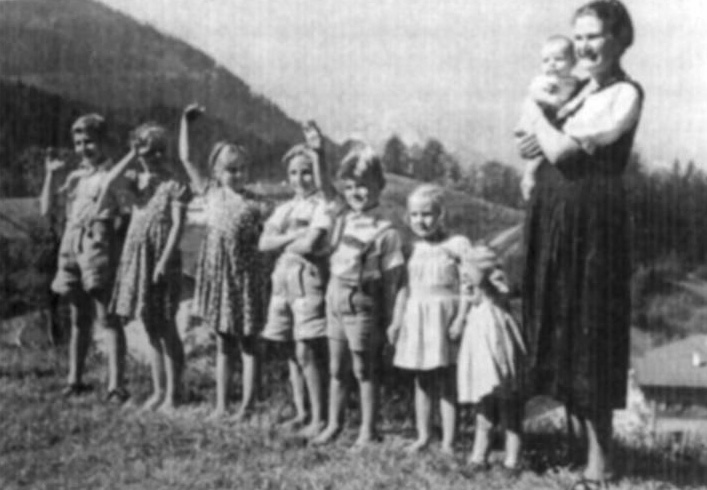
[Above: Gerda Bormann and her children.]
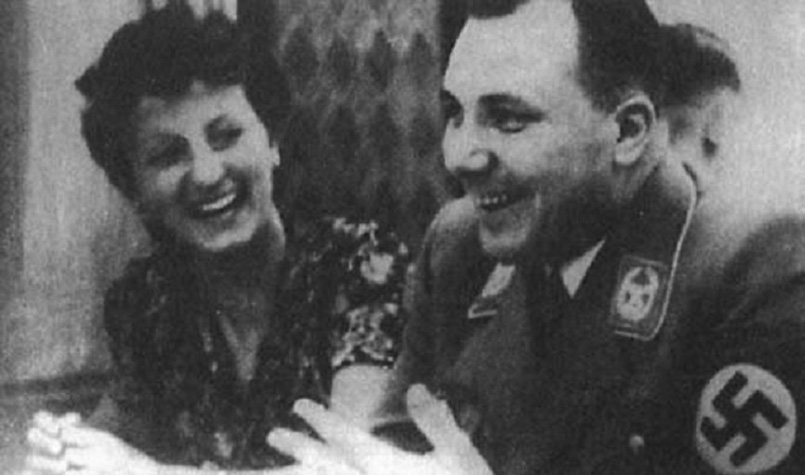
[Above: Gerda and her husband.]
'The Reich Chancellery garden is an amazing sight: deep craters, fallen trees, and the paths obliterated by a mass of rubble and rubbish.
The Führer's residence was badly hit several times; of the winter gardens and the banquet hall, only fragments of the walls are left;
and the entrance hall on the Wilhelmstrasse, where the Wehrmacht guard was usually mustered, has been completely destroyed...
In spite of it all, we have to go on working diligently, for the war continues on all fronts!'
--Martin Bormann, in a letter from the bunker to his wife Gerda in Obersalzberg, February 3, 1945.
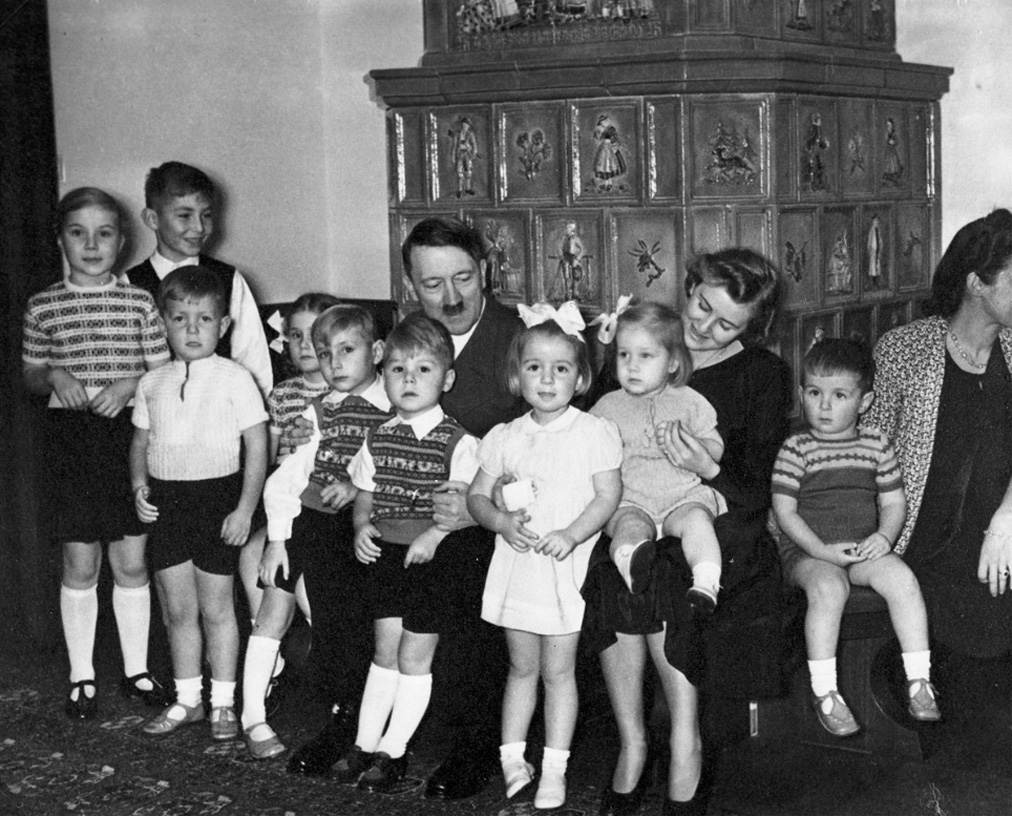
[Above: Adolf and Eva and the Bormann children.]
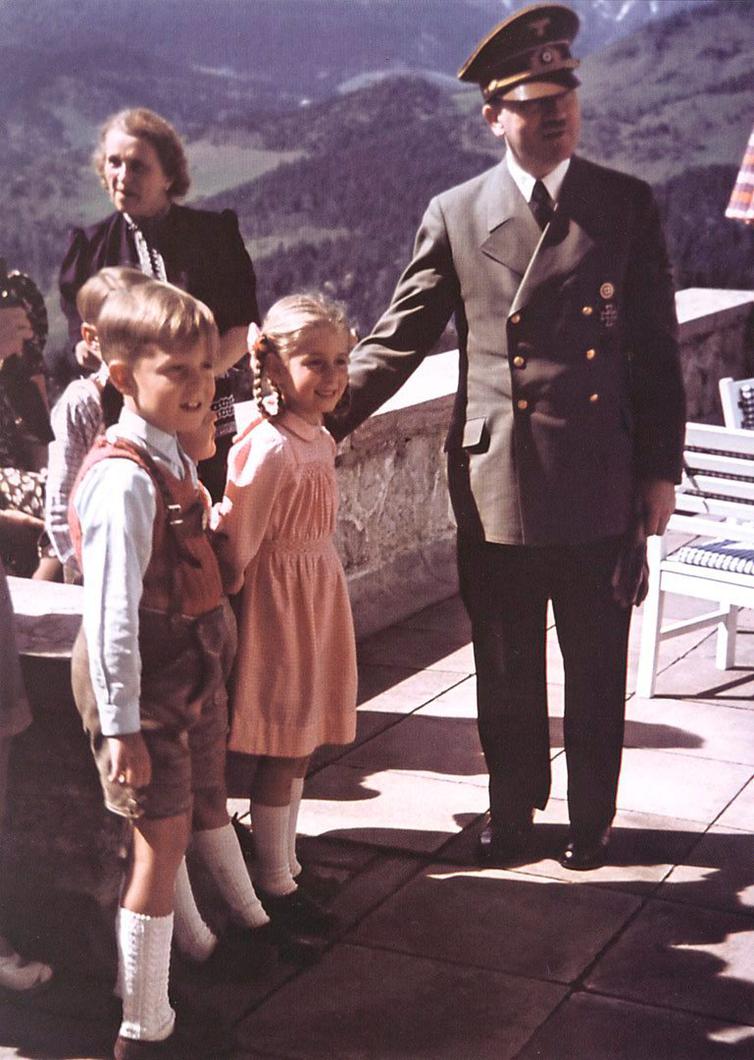
[Above: Adolf Hitler and a few of the Bormann children.]
'The Reich of our dreams will emerge... In some ways, you know, this reminds me of the Goetterdaemmerung [the Twilight of the Gods] in the Edda [the ancient Norse saga]...
The monsters are storming the bridge of the Gods... the citadel of the Gods crumbles, and all seems lost; and then, suddenly, a new citadel arises, more beautiful than ever before...
We are not the first to engage in mortal combat with the powers of the underworld; and that we feel impelled?-and are also able?-to do so should give us a conviction of ultimate victory.'
--Gerda Bormann, mother of Irmgard, in a February 1945 letter from the Obersalzberg, to her husband, Martin.
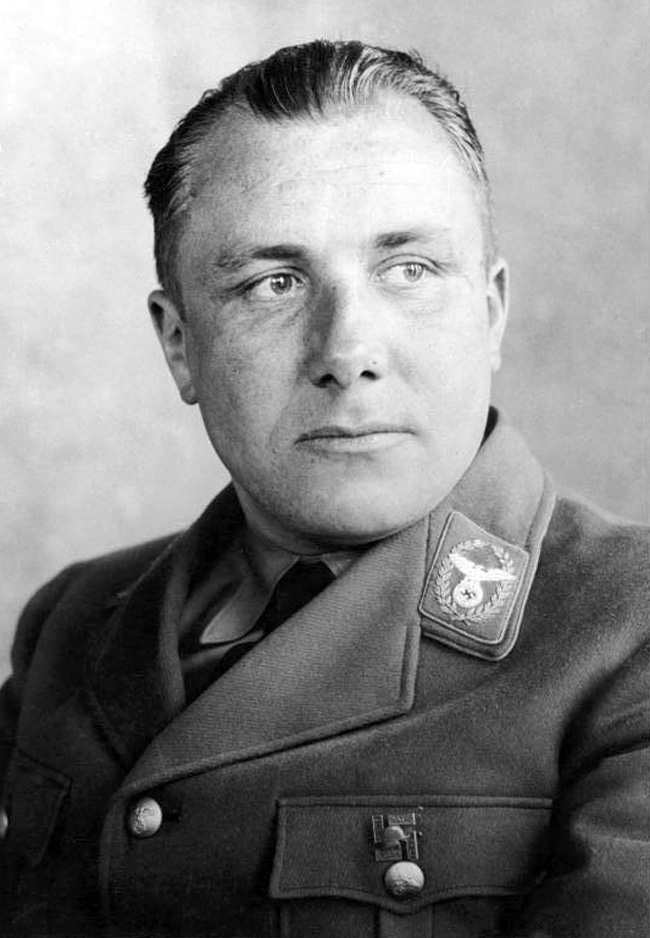
[Above: Martin Bormann, Old Fighter and eternal enigma.]
Back to Interviews











